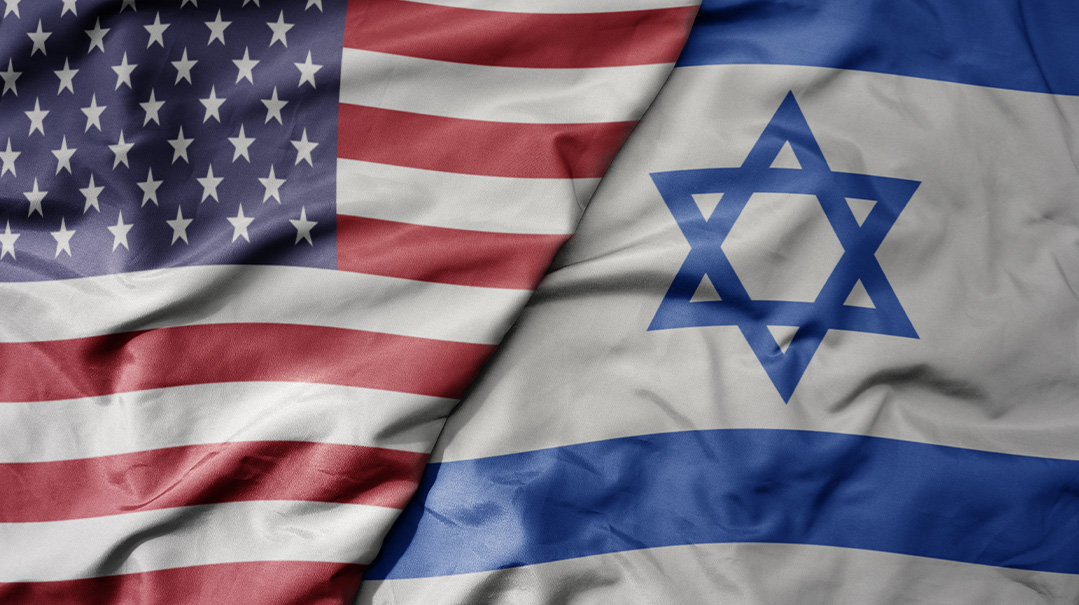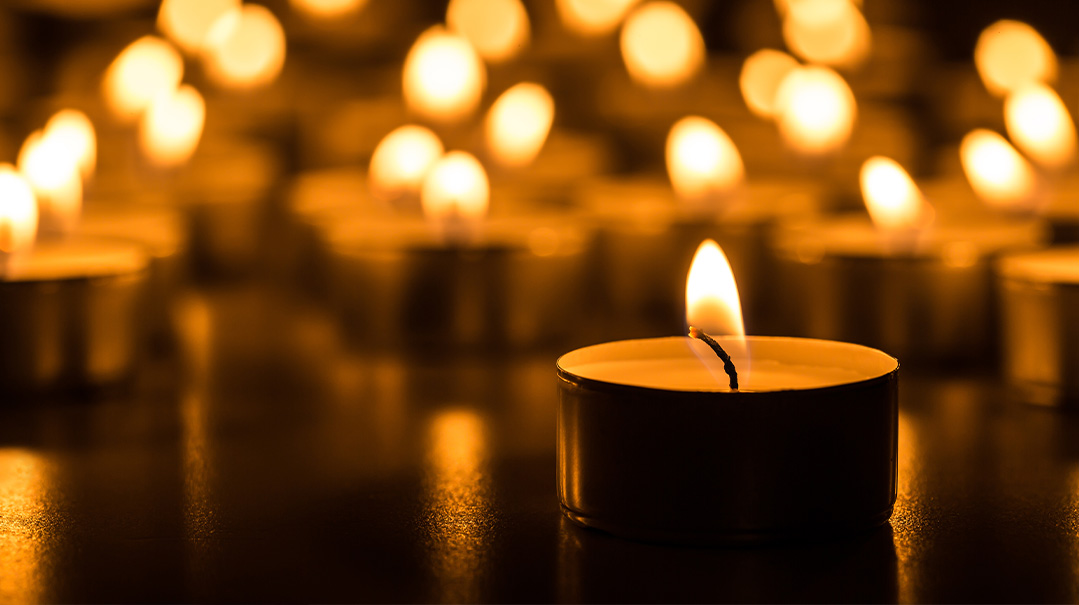Why the Universities Matter

Bad ideas incubated on campus infiltrate the rest of society sooner rather than later
I would guess that many readers wonder from time to time: Why does Rosenblum spend so much time writing about the decline of American higher education? After all, few Mishpacha readers dream of their children frolicking at Ivy League schools.
Admittedly, some of my fascination with the topic is personal. The late Allan Bloom writes in The Closing of the American Mind (1987) about how earlier generations of students came to college with high expectations of a new world of ideas about to open up before them.
I know I did. And I was not disappointed. Not only did I love college, but I feel it provided me with a base for much of my subsequent life. My classmates and I came to college to learn, to be exposed to new ideas and perspectives. Today’s students, according to Princeton’s Robert George, come into college already thoroughly indoctrinated and prepared to be offended at whatever challenges that indoctrination. By contrast, at the University of Chicago, in my day, the dictum of former president Hanna Holborn Gray, “The purpose of education is not to make people comfortable; it is to teach them to think,” still reigned supreme.
When I think of the intellectual ferment of those years, and the sheer joy of reading for hours on end in the library, I am filled with sadness for all those young people today who will never experience the same love of learning, largely because they think they have nothing of importance yet to learn.
Further, I believe my college education predisposed me to give an open ear to the Torah, a few years later. The University of Chicago still upheld the idea of the Western canon of great ideas that had shaped our civilization. How, then, could I dismiss out of hand an even more ancient canon?
Though my politics in those years were typically liberal, the college reinforced the conservative temperament of my family: respect for tradition and the accumulated wisdom of mankind. I did not come into college thinking that I knew everything I needed to know, and I left even more convinced that there was much more to learn.
Something still remained of the old Great Books curriculum from my parents’ days in the College, including the focus on a handful of eternal questions: the definition of a good life; the nature of Man; the meaning of citizenship. The Torah, in many cases, offered different answers, but I had heard the questions before.
Remarkably, given how politicized the country was in the midst of the Vietnam War, I cannot remember any discussion of current politics in my college classes. The spring quarter of my freshman year, four students were shot and killed by National Guardsmen at Kent State University. Classes were canceled so that students could go out to campaign. At the beginning of the next quarter, one professor announced that everyone in the class would receive an A: “If the university does not value what it offers, why should I?” he explained. His reaction expressed the University of Chicago ideal.
I doubt that nearly as many Jewish students on the highly ideological campuses of today — where so many busy themselves poring over their matrices of oppression, which portray traditional religious views as one of the bulwarks of white supremacy — would even give Torah an ear.
BAD IDEAS INCUBATED ON CAMPUS infiltrate the rest of society sooner rather than later. One example is the pervasive notion — that goes by the name “equity” — that any differentials between student admissions or faculty appointments and the percentage of different racial groups in the general population reflect “implicit racism.” To ensure that no other explanations can be given, there is a growing move away from all standardized testing.
Jordan Peterson resigned recently as a tenured faculty member at the University of Toronto, despite the fact that he is an excellent teacher who loved teaching both undergraduates and graduate students. He is an intellectual rock star and can still count on a large audience, but the points he made in the National Post decrying “the appalling ideology of diversity, inclusion, and equity [DIE, in his preferred acronym]... demolishing education and business” deserve a large audience.
He lamented that he could no longer in good faith accept as graduate students any normal white males, because they would, in the current environment, have no chance of securing academic appointments. All the places have been reserved for BIPOCs (black, indigenous, or people of color) or other favored identity groups. Moreover, having a conservative like Peterson as a thesis advisor would count heavily against them. (In point of fact, Peterson is neither particularly political nor particularly conservative. He just does not like being told what to think or say.)
As Peterson points out, academic hiring committees have been beating the bushes for decades to ensure that no qualified “minority” candidates were ever overlooked. Having failed to achieve their desired quotas, they are now prepared to abandon all objective standards and “produce a generation of researchers utterly unqualified for the job.” In addition, Canadian accrediting boards for clinical psychology training programs now require a “social justice” orientation, inevitably leading to acceptance of systemic racism as the explanation for all inequities.
Perhaps Canada can survive a less qualified and talented pool of clinical psychologists, but how long can any country compete in science and medicine when “social justice” criteria replace meritocratic ones?
Highly paid DIE officials, charged with enforcing the current race-obsessed orthodoxy, multiply rapidly. At Yale, for instance, administrators now outnumber students. And once they are in place, those officials have to show that they are doing something.
Take one recent example. Trent Colbert, a second-year Yale Law School student, sent out an invitation for a Constitution Day mixer at “the soon-to-be world-renowned NALSA [Native American Law Student Association] trap house.” The invitation was also on behalf of Yale’s Federalist Society, a conservative legal group.
A number of black law students complained that “trap house,” a term that once was slang for a house where cocaine is sold, but which, according to the Urban Dictionary, today refers to a “party house,” was racist, as was the reference to the fried chicken to be served. In response to those complaints, Colbert was hauled before two Yale Law School discrimination and harassment officials the next day and urged to sign an apology, which they had helpfully drafted for him. The failure to do so might hurt him in law firm hiring and before bar exam ethics committees, they warned.
Nevertheless, Colbert refused to sign, offering instead to meet personally with any student who had been offended. In response, the Yale Law School Office of Student Affairs sent out an email to all second-year students deploring the “racist” language in Colbert’s invitation.
What saved Colbert in the end is that he himself is a minority — Native American — and even more so, he had taken the precaution of taping the top administrators’ efforts to browbeat him into abasing himself.
Not surprisingly, DIE officials tend to be highly ideological, and part of that ideology is anti-Semitism. Though charged with providing a warm and accommodating campus environment for a diverse student body, in the title of a book by UK comedian David Baddiel, Jews Don’t Count. According to the fashionable doctrine of intersectionality, the Palestinian cause and that of black Americans are inextricably bound by their oppression by white colonialists, into which camp American Jews are said to fall.
The Heritage Foundation published a study in December of the tweets of over 700 DIE officers on 65 campuses. The study focused on tweets by said officers on Israel and China. Tweets on Israel vastly outnumbered those on China, and of those, 96 percent were hostile to Israel. Lest it be argued that those tweets reflect only human rights concerns, 62 percent of the tweets on China were favorable, even though the latter is currently holding over a million Muslim Uighurs in reeducation camps, has clamped down on free speech and other civil liberties in Hong Kong, and is menacing virtually every one of its neighbors.
All this would be bad enough. But as Peterson observes, “What happens in the universities eventually colors everything” — whether downward in the form of indoctrination of K-12 students, or laterally into woke boardrooms and the media. More on that story anon.
Originally featured in Mishpacha, Issue 897. Yonoson Rosenblum may be contacted directly at rosenblum@mishpacha.com
Oops! We could not locate your form.






